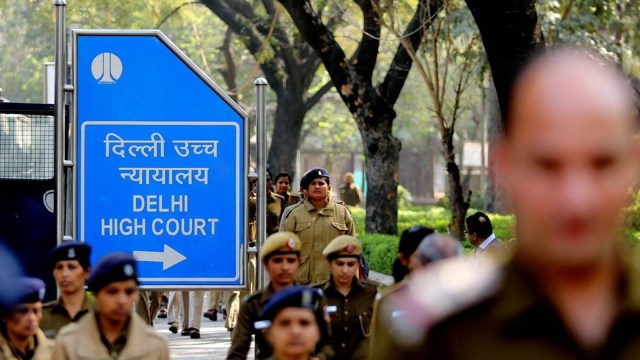Delhi HC issues timelines to be followed in organ transplant cases
The Delhi High Court said the timeline for processing applications for living donor transplantation must be a maximum of 10 days and verification of documents on domicile status must be done within 14 days.
 Delhi High Court (File)
Delhi High Court (File)The Delhi High Court on Thursday issued timelines for the authorisation committee under the Transplantation of Human Organs and Tissues Rules, 2014, to conduct interviews of proposed donors and for the decision-making process in organ transplant cases.
A single-judge bench of Justice Prathiba Singh said, “An organised and timely transplantation decision-making process” contemplated under the Transplantation of Human Organs and Tissues Act and the 2014 Rules would be “nullified if timelines are not prescribed for various steps”.
After considering the critical importance of pre-transplantation interviews, Justice Singh found it necessary to establish timelines under the 2014 Rules. As per the Act, the state government/Union Territories shall constitute, by notification, one or more authorisation committee consisting of members who may be nominated by the state government/Union Territories on terms and conditions specified in the notification.
“Such a time-bound approach is crucial to maintain the integrity and effectiveness of organ transplantation protocols. This would also be in furtherance of the Right to Health under Article 21 of the Constitution…While the satisfaction of the authorisation committee is absolutely crucial in this process, internal timelines will still have to be fixed to ensure that the said committee’s functioning is systematic,” the high court underscored.
It thereafter said that the timeline for processing the application for living donor transplantation must be a maximum of 10 days from the date of the application. The verification of the documents concerning the domicile status of the recipient and donor must be done within a maximum of 14 days. The court added that any opportunity given to the donor or recipient to complete the required documentation must be communicated to them within the prescribed timeline under the Rules.
Justice Singh further said that after four to six weeks of receiving the application, the interview should be scheduled within two weeks. It further said that within this two-week window, the committee should conduct the interview of the donor/recipient on one or two occasions, facilitate a meeting of family members of both the donor and the recipient and convey the decision.
“The entire process, from submission to decision, ought not to ideally exceed six to eight weeks,” the court said.
“The non-adherence to timelines has resulted in extended waiting periods of two to three years in some cases before a decision is made, which contradicts the intent as also the letter and spirit of the 1994 Act and the 2014 Rules. Such prolonged delays can cause significant mental and physical anguish for both the donor and recipient as also their families. Therefore, clear and prompt communication regarding the application is essential, whether it be oral or written, to enable the donor/recipient and their respective families to proceed with the decision-making process,” the court added.
In its 42-page judgment, the high court observed that pre-transplantation interviews play a crucial role as the authorisation committee has to ascertain that there are no commercial considerations in the donor donating the organ to the donee. The court, however, said that this interview and documentation process needs to be done in a “time-bound manner failing which the purpose of the process itself could be defeated”.
“Quick decision-making is crucial not just for the donor or the recipient, but also for their respective families. The complex nature of the process, in fact, tends to deter organ donation which would also not be in the overall interest of the society as a whole, in terms of the object sought to be achieved by the Act. The intention of the Act and Rules is to regulate organ donation and not to completely dissuade the same,” the high court underscored.
The court called for the judgment to be placed before the Secretary, Ministry of Health and Family Welfare to ensure that timelines under the 1994 Act and 2014 Rules are prescribed for all the steps in the process of consideration of applications for organ donation, after consultation with the relevant stakeholders.
The high court was hearing a plea moved by a kidney patient in 2020 who sought a direction to Sir Ganga Ram Hospital to carry out a kidney transplantation and a direction to the authorisation committee to grant the necessary approval. The patient had passed away in 2021.







